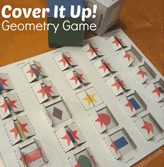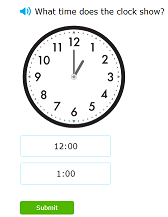A Non-profit Organization to Help Students Study, Explore, and Engage
Grade 1 Math
Alberta Grade 1 Math: Grade 1 Math Curriculum, Alberta
The Grade 1 Math Curriculum Consists of:
Building the basics through addition and subtraction facts. Your child will count to 100 in different ways, and describe and estimate quantities to 20. They will understand and apply strategies for addition facts up to and including 9 + 9 and related subtraction facts, and recall addition facts to a sum of 5 and related subtraction facts. They will connect numbers to their everyday life, and find geometric shapes in their surroundings. Your child will solve problems involving numbers, patterns and measurement. Find out more
Contents and Curated Lists (alphabetical order):
| Addition Games | Logic | Subtraction |
| Coins | Number Sense | Symmetry |
| Even or odd | Odd-one-out | Tangrams, Digital |
| Geometrical Shapes | Patterns | Telling Time |
| Puzzles | Unconventional Projects |
Frequently Pondered Questions
Q: Why not stick with traditional Math workbooks?
A: Traditional Math books focus on barebones skills such as counting, addition and subtraction in a dry and boring format. There are so many resources nowadays that infuse art and use creative ways to deliver topics. If it looks like it would be boring for an adult to complete the work, be sure it's boring for a child as well.
There is no excuse any longer to make math excruciatingly boring and repetitive. Research shows students learn best when they enjoy lessons and take part voluntarily. Always choose resources that are interesting but also encourage active learning.
Follow the suggested order for a full Grade 1 Math lesson plan
Our Educators have hand-picked the worksheet they most believe contribute to a first grader's development.
Number Sense
After students have a good sense of general counting they can start counting up/down by a number of units.
Is your grade 1 student not thriving? Have you considered that simply counting numbers on a worksheet has become a bit boring?
There are many ways to get your student's attention. The following project develops attention and is a bit more engaging.
Every number between 1 and 20 appears exactly twice in the image below. To play this game, follow these steps:
- Find two dots that have the same numbers, they make a pair.
- Place a ruler between the two dots with the same number and draw a straight line between them.
- Repeat these steps until you can no longer find two dots with the same numbers. Can you find all the pairs?
When done, a pattern will emerge. Color the pattern with beautiful colors, see an example below. This project has proven to be more fun, and holds attention over counting numbers very well, but is a bit more interesting than traditional counting and number matching projects.
Number Puzzles 1-20
Addition, Sum up to 10
Make sure learning addition is fun. Play an addition game with your students: Click here to get the instructions.
The game requires a dice, but you can make your own. Print the cube net, draw the dots on it before you fold and glue.
See preview below.
Help your students master basic math skills. Children must first learn numbers and counting. Once these concepts are solid follow with fractions, time, money, measurement and geometry. Simple word problems are also very important.
Help your Child Evolve Logic and Mathematical Thinking
Learn about AND and OR.
(Click the images to download the related worksheets)
A very important concept in Logic is the Venn Diagram. Familiarity with Venn Diagrams ensures students have an easier time understanding union, intersection and subtractions of sets in later years.
Telling Time
Printable to make your own analogue clock projects (click on the image to download the page):
Color a number of time units (5, 10, 20,... minutes) or write the minutes over the corresponding lines.
Use the forms below to teach the students to count by 5. This develops intuition of where the minutes are positioned on the analogue clock.
Draw the hands of the clock showing the given time on the analogue clock.
Make your own analogue clock.
Use an app to help you learn about telling time with Analogue Clocks:
Patterns
(Click the images to download the related worksheets)
Before learning patters, it helps to simply copy them. After a few of these copies children figure out the patterns on their own and can extrapolate the next item in a series.
Are your students only learning about numbers?
Use crafts, coloring and hands-on projects to make math more fun.
Figure out other types of patters by encoding messages.
Symmetry
Use a mirror to construct a full robot from half a robot - learn about symmetry.
Counting and number Patterns
Practice visual acuity, this webpage asks to compare which group
is larger. Notice the arrows below the image and page through.

Digital Tangrams
Geometrical Shapes
2D Shapes:
Improve geometrical shape
recognition and Working Memory |
 |
Find instructions for this activity here. |
Geometry from the old Kerpoof website
Geometry - Angles (Kerpoof Lesson Plan: Crazy Angles! - used to be on the Kerpoof website)
3D Shapes:
|
Track the position of the elements on the folded cubes. |
Have your student draw something on the cube before folding, explore where each drawing has landed after folding. |
||
 |
 |
Odd-one-out
Puzzles
Working with Coins
Even or odd
Digital Manipulative:
https://www.learnalberta.ca/content/memg/Division01/Attributes/index.html
Subtraction
4 Different Ways To Teach Subtraction To Your Child
Subtraction Projects: Add and Subtract While Coloring
Unconventional Projects
Focusing too much on numbers can become boring, try some unusual Math projects...
|
Download
the project
files here.
|
Printables... Print the Borromean rings and link them together.  Black and White version if you wish to color your own.  |
||
Learn something different, like the Fibonacci Sequence. Fibonacci is often seen as a complex topic. However, this is a very simple project that any child can do. This is a sure way to infuse some fun in your Math Curriculum. Download
the
project
files here.
|
Printables... Fill out and color a Fibonacci Sequence. Draw the spiral.  |
Find more projects like these about Fractals,
Menger cubes, Sierpinski triangles
and more, this in this book:

Articles
How to Help a First-Grader Who's Struggling With Math
Academix: Study, Explore, Engage...
Copyright © 2025 Academix. All Rights Reserved.





























 see more puzzles
see more puzzles









